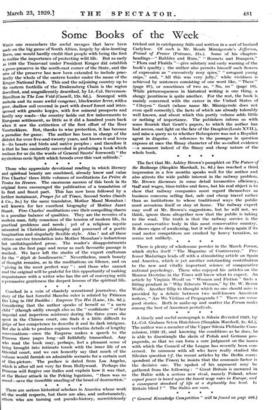Couched in a vein of chastely sensational journalese, the story
of the last forceful Manchu ruler is related by Princess Der Ling in Old Buddha : Empress Tzu Hsi (Lane, 12s. 6d.). Considering that the author speaks of herself as " a mere child " (though oddly enough also as the " confidante " of her imperial and imperious mistress) during the three years she spent in the Chinese court, one finds it a little difficult to judge of her competence to describe it and its dark intrigues. But she is able to produce copious verbatim details of lengthy conversations—once the Empress makes a speech to the Princess three pages long—all faithfully transcribed. Any who read the book may, perhaps, feel a pleasant sense of being brought into intimate touch with the inner life of an Oriental court, and we can honestly say that much of the volume would furnish an admirable scenario for a certain sort of film-picture. The preface is dated from Los Angeles, which is after all not very far from Hollywood. Perhaps the Princess will forgive our italics and explain how it was that, at the BoXer attack in the Peking legations, " there was no sound—save the inaudible snarling of the beast of destruction."
* * *
















































 Previous page
Previous page